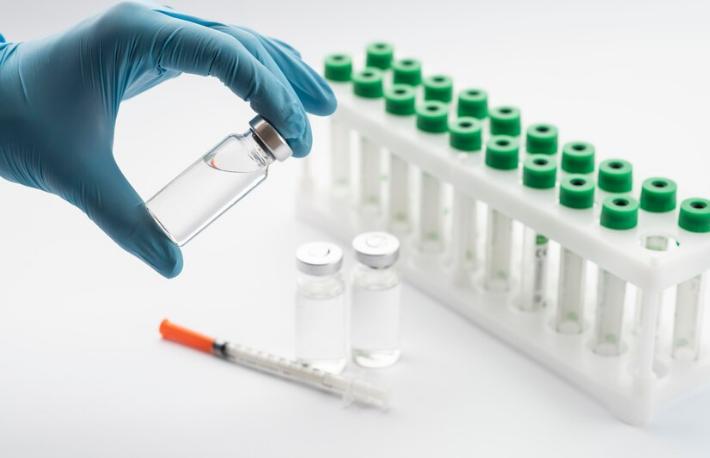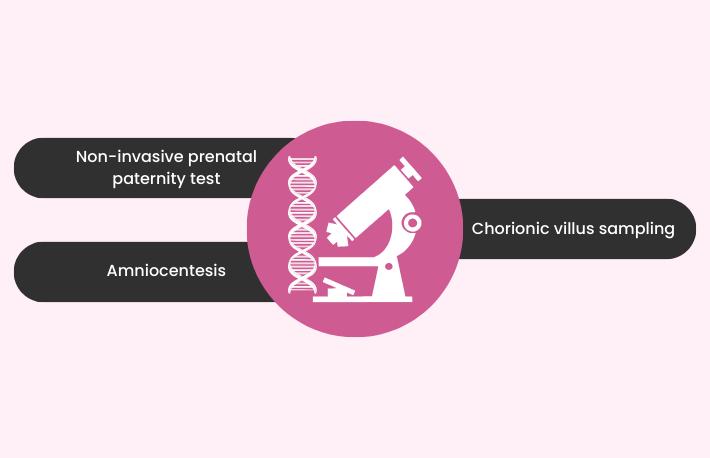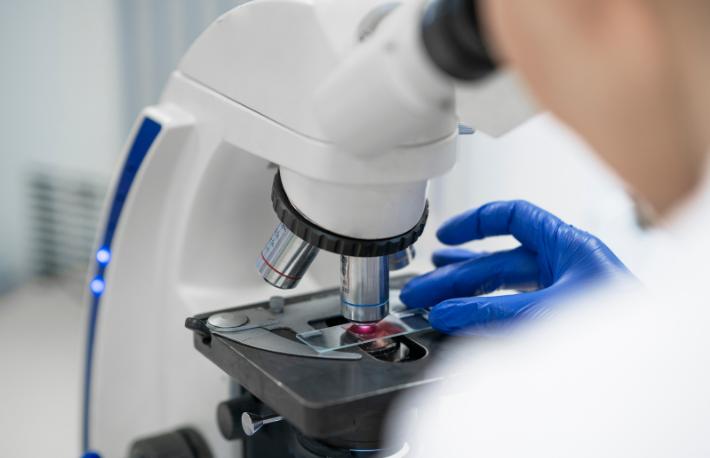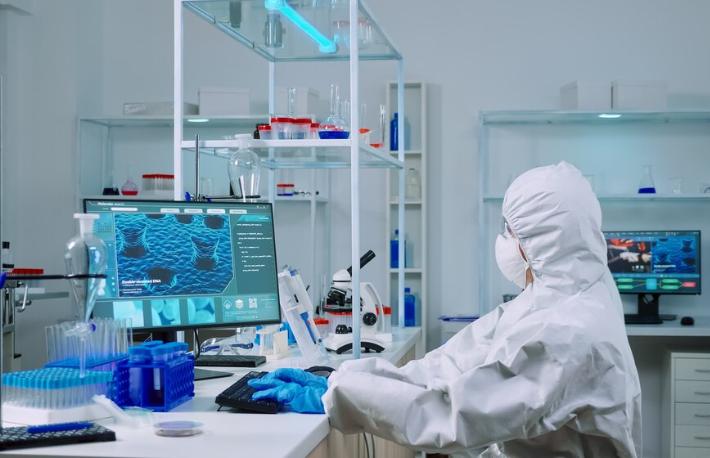
Prenatal Paternity Test: The Most Critical Factor Is Determining The Future Of The Child!
Prenatal paternity test or the DNA testing can easily be done during the early stages of pregnancy without bearing risks.
There are times during your pregnancy when you might question the paternity of the baby growing inside you. Therefore, it is natural for you to be wondering about the options you have. Do you really have to wait throughout the pregnancy to know who the father of your baby is?
Yes, a postpartum paternity test is a very feasible option. But you would be happy to hear about prenatal pregnancy tests that can easily be done even when you are pregnant.
You can do DNA testing somewhere as early as the 9th week of your pregnancy. There are multiple technical advancements that confirm that the test can be done without harming the mother or the baby.
So, are you planning for a prenatal paternity test? Or want to know a bit more before making a decision? Well then, you are here at the right place.
What Is A Prenatal Paternity Test?

A prenatal paternity test is a DNA testing process that checks for potential matches between the DNA of the child and their parents. A paternity test uses DNA, or any genetic material inherited from both the father and the mother. This determines if the man is the biological father of the baby or not.
The process mainly involves the comparison of the DNA of the father and the unborn baby.
What Does A Paternity Test Determine In General?
A paternity test helps determine the actual biological father of your child. It is particularly important for medical, psychological, and legal reasons.
As per the American Pregnancy Association, determining the paternity of the baby:
- Provides the medical history of the baby
- Establishes the social and legal benefits like social security or inheritance
- Strengthens the bond between the child and the father
For these reasons, multiple states in the United States have laws that require a form to acknowledge paternity to be done at the hospital following the birth of the baby.
Once completing the form, couples get a designated amount of time to request a DNA paternity test to amend the form. This form gets filed along with the Bureau of Vital Statistics as a legally binding document.
How Accurate Is A Prenatal Paternity Test?

A prenatal paternity test is just as accurate as any other post partum paternity test. One research study found that approximately 20 prenatal DNA samples of babies accurately confirmed the paternity reports of the biological father.
And, out of the 36,400 tests that were done on unrelated females, the test results rightly excluded the paternity of the male 99.95 percent of the time.
Why Do You Need A Prenatal Paternity Test?
Here are the reasons why you should go for the prenatal paternity test that you have been anticipating for long:

- Not knowing who the father of the child is stressful. And waiting for nine months to know who the biological father is only adds up to the worry.
- Knowing before time might help you make the correct decisions about your family and romantic relationships before the birth of the baby. Doing the same after the baby is born makes things way more complicated. And is something that you would want to avoid at all costs.
- While awaiting the arrival of your little one, you might want their biological father to get more involved in the pregnancy and during childbirth.
- If you know who the father of the child is before the baby arrives, you can sort some of the legal procedures ahead of timeline custody, child support, and more.
- You can choose to have the right person with you in the room while you welcome the little bundle of joy in your life.
Types Of Prenatal Paternity Tests
There are mainly three types of prenatal paternity tests that a woman can opt for. These tests are just as accurate as the ones that are done once the baby is born. The three methods to check for paternity are:

Non-invasive prenatal paternity test
This test primarily analyzes the DNA in the blood of a pregnant woman during the first trimester. A lab professional compares the fetal DNA data to the data of the apparent father’s cheek cell sample.
Chorionic villus sampling
A healthcare professional takes a very small sample of tissues from the placenta. This is done through the cervix or the abdomen of the mother. A lab then compares the sample to the potential father’s and the mother’s DNA. This process generally happens between 10 to 13 weeks after the woman has her menstruation for the last time. The procedure, however, is a little complicated and carries a risk of pregnancy loss or miscarriage.
Amniocentesis
During the process of Amniocentesis, a healthcare professional takes out a small amount of your amniotic fluid. The test makes use of a needle that is inserted in the abdomen of the mother. The lab then compares the fluid sample to the DNA of the mother and the potential father. Amniocentesis happens in between 15 and 20 weeks of pregnancy. However, the test might increase the risk of a miscarriage.
How Does A Prenatal Paternity Test Work?
The process is not as complicated as you might think it to be. Here are the steps to conduct a successful prenatal paternity test on pregnant women.

- The DNA of the mother is collected with just a simple blood test. The same is collected from the potential father using the cheek swab method.
- Both of those samples are sent to the laboratory for analysis.
- The test then analyzes the fetal DNA from the mother’s plasma and then compares it to the DNA profile of the mother.
- Once the profile of the fetus is determined, it then gets compared to the probable father’s DNA to determine the paternity of the baby.
- You will get the results of the prenatal pregnancy test in just one week once the testing process starts. If the man in question is not the biological father, then the report comes out with a 0 percent probability of paternity. And when the man is in fact the biological father of the baby, the results show a 99 percent paternity probability.
* Note: In case you are pregnant with twins, doing a prenatal pregnancy test might not be a possible method to determine the biological father of the babies. This is because there is free-floating DNA from both the babies in the bloodstream of the mother. Our recent technology does not permit laboratories to test each baby’s profile in a separate way.
Risks Of Prenatal Paternity Test
As per experts, the risks of a prenatal pregnancy test are just the same as any other blood test that you get done during pregnancy. This means the risk factor is pretty low. In certain cases, there are not enough samples of DNA to come to a reliable result. For these cases, a redraw might be needed to get the most accurate results.

However, there are other methods of paternity testing other than the non-invasive prenatal paternity test, like the chorionic villus sampling and amniocentesis test. These tests, however, bear some risk in comparison to their safer counterpart. Both of these other methods of prenatal pregnancy tests come with a high risk of infection. There is also a high risk of miscarriage. However, the risk in both processes has a very low estimation of less than 1 in 200 cases. In addition to it, there is also a chance that you need to redo the whole procedure because it was not correct on the first go.
Because of the risks associated with CVS and Amniocentesis, it is now more common for people to go for the noninvasive prenatal pregnancy test, just as it is in the case of a potential genetic condition.
What To Look For In A Laboratory For Prenatal Paternity Testing?
If you are concerned about the risks, it is the laboratory that you need to be more concerned about.
If you are unsure how to check for a good, trustworthy clinic, here are some factors that you may take into consideration:

- A guarantee of accuracy – you need to make sure the place you are doing the test stands behind with its results and their results are rightly accurate.
- Full authorizations with the right reputation in the industry – a prenatal paternity test is way too important for you throughout the pregnancy and the rest of the life of your baby. Therefore, it is your responsibility to make sure to visit a laboratory that is popular for conducting intensive research and giving accurate authorizations.
- Tests that are consistently updated – technology is evolving, and so are the methods of conducting tests. If you are visiting any particular laboratory, you need to make sure they update their tests with every advancement in technology.
- Professional and caring support before, during, and after the test – getting a DNA test is not that hard. But, it indeed is an emotional process. When you have the support of a professional and empathetic team, dealing with the whole process becomes a bit easier, and you feel more comfortable throughout.
- Beware of the pricing – some places come up with pricing strategies that are too good to be true. But do not be fooled by this. A prenatal pregnancy test is one of the most important tests that you can do throughout the whole pregnancy. Also, the results will determine the healthy future of your baby. So, make sure to do it from a place that does not offer the cheapest price for their services.
Frequently Asked Questions
A simple prenatal paternity test does not take a long time. The results come to you pretty quickly. It typically takes about a week’s time to provide you with the results of the test.
Therefore, there would be no need for you to take any extra tests or go for a redraw.
While the results for Amniocentesis take pretty little time to come up with the results, CVS might take around two weeks for you to come to a conclusion.
The cost of a regular prenatal paternity test may vary based on a number of factors, such as the testing agency, whether it is an at-home test, or whether it has any legal roots attached to it. In that case, there will be a chain of legal custody protocols and a number of potential fathers under consideration.
In general, the cost for testing might go anywhere from just a couple hundred to a couple thousand rupees. Also, medical insurance does not cover the cost of a prenatal paternity test.
Some women tend to wonder if paternity can easily be determined if they just pinpoint the conception date. It is tough to actually find out if the conception happened on the assumed date, as most women tend to ovulate on different dates from one month to the other. Plus, sperm can stay in your body for three to five days after intercourse.
The Bottom Line
A prenatal paternity test is one that confirms the biological father of a baby while it’s still in the womb. This is one of the safest ways to confirm the father of the child without posing any risks.
Because of its importance, you need to keep in mind that you should not do it from any random place. Make sure the laboratory you prefer has a proper record of delivering accurate paternity results. Do not go for the cheap options, as they are too cheap to be true.
Most women tend to worry before a prenatal paternity test. But there is nothing to worry about. The noninvasive test does not pose any threat to the fetus.
Getting this test done should be a must for every pregnant woman to determine the father of the baby for all legal, financial, and emotional support.
ADDITIONAL READING:
Already have an account?
Sign In
Create your account
User added successfully. Log in








